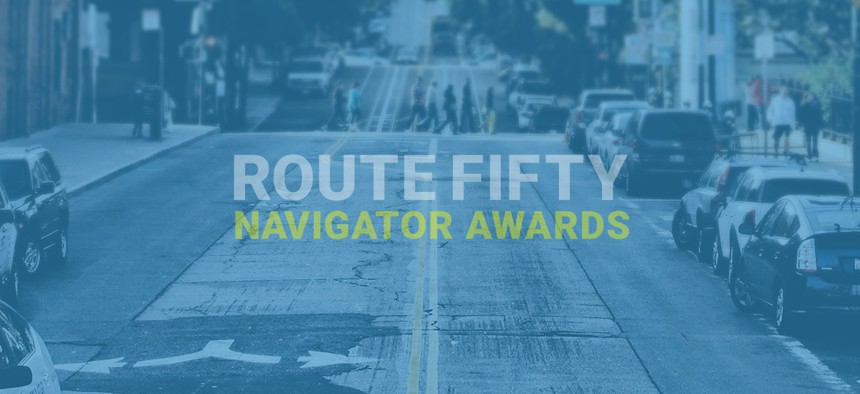Navigator Award Finalist: Chelsa Wagner and Team, Allegheny County Controller’s Office

Bringing greater transparency to county government finances.
This is the 48th in a series of profiles on the 50 finalists for Route Fifty’s Navigator Awards program. The first 10 finalists were from the Government Allies and Cross-Sector Partners category. Finalists 11-20 were from the Agency and Department Leadership category. Finalists 21-30 were from the Executive Leadership category. Finalists 31-40 were from the Next Generation category. Finalists 41-50 are from the Data and IT Innovators category. Explore our complete list of 50 finalists.
In the world of government accounting, little things matter. They can add up to larger problems if they go unnoticed and unaddressed.
And while a commitment to transparency by state and local government leaders is, naturally, a must, finance teams also need the right tools to not only boost transparency, but also spot potential issues that need to be addressed before they become more difficult to manage.
In Allegheny County, Pennsylvania, which includes Pittsburgh and surrounding jurisdictions, Controller Chelsa Wagner and her members of her team, Amy Weise, Tony Cholewinski, and Mario Rudolph, have fully embraced transparency efforts to make government accounting more accessible to residents and other local stakeholders. They’re using financial management and data tools from OpenGov, a Redwood City, California-based cloud-based company that works with more than 1,200 public agencies across the nation.
Allegheny County’s old system simply wasn’t set up for rapid reporting and knowledge-sharing. Delayed reporting means delayed decisionmaking. And that’s when time can really matter.
As a Navigator Award submission for Wagner and her team explained the challenge:
Creaky and inadequate reporting infrastructure placed a huge burden on overworked IT staff that needed to support a barrage of information requests from other departments (and the public). Most users found the financial system too complex to use themselves. Reporting delays spawned knowledge deficits, which further delayed decisions and degraded their quality.
In June, Wagner’s office discovered that accruals due in May weren’t being entered into the county government’s financial system, which raised a red flag. The issue was quickly addressed.
The “ability to interact with data helped us correct the problem faster than we would have otherwise,” Cholewinski, the assistant to the deputy controller for management systems, said in a case study profile on Allegheny County’s use of the OpenGov financial transparency tools.
Another discovery: Revenue adjustments and reclassifications were being made in financial reports but not in the underlying database. Those reporting errors were fixed. Overall, the team changed processes across the county government to upload accurate data more quickly.
While the county controller’s transparency initiatives have spotted many of those seemingly little things that add up to big problems, Wagner and her team is also better equipped to find unexpected insights from the data or look at bigger-picture challenges.
The new approach makes it easier to compare how the salaries of men and women in the county government compare so decisionmakers can figure out ways to achieve pay equity or look at other county data.
For all this hard work and dedication to improve financial transparency, Route Fifty is pleased to include Wagner and her team in Allegheny County as Navigator Award finalists.
Michael Grass is Executive Editor of Government Executive’s Route Fifty and is based in Seattle.
NEXT STORY: Navigator Award Finalists: Reshma Khatkhate and Team, Mississippi Department of Human Services






